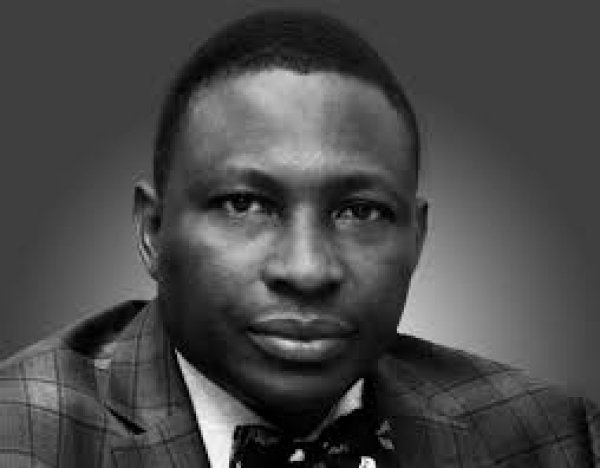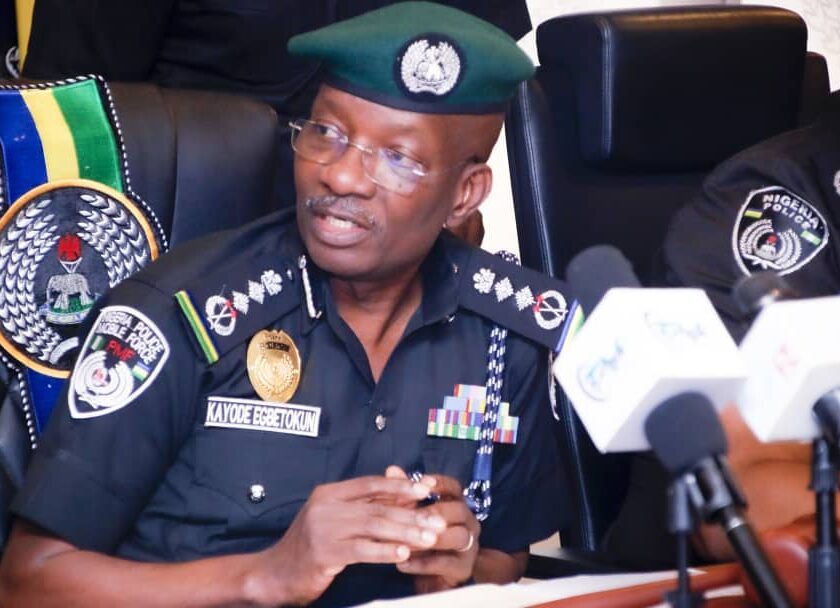I woke up to a WhatsApp broadcast the other day. It was a letter purportedly from the United Nations to Mr. Olanipekun Olukoyede, Chairman of the Economic and Financial Crimes Commission (EFCC). In the letter dated January 1, 2024, the UN supposedly expressed appreciation to the EFCC for recovering the €2 billion allegedly stolen by Mr. André de Ruyter, former CEO of Eskom, the South African electricity company. The UN apparently wanted to use the money to build a solar farm in Namibia.
I found the letter too good to be true. The UN writing to the EFCC on New Year’s Day? It didn’t sound believable. I quickly carried out some due diligence and discovered that the story first appeared on a news site of questionable reputation on December 30, 2023. It has been shared a few times since then, mostly by equally dodgy sites. I could not find the story in any credible media outlet. In fact, the official website of the EFCC did not feature it. Also, there was no record of the UN acknowledging the receipt of the money.
That said, we can address the issue in two parts. One, the letter could be fake news. This would not be unusual in a world dominated by social media where there is no central clearing house for the dissemination of information. Fake stories can get millions of shares and attract all the engagement in the world without any form of fact-checking. Two, the letter could be genuine, but the details exaggerated. This too would not be unusual in a world where propaganda and media manipulation are common practices in politics and government.
When Olukoyede was appointed EFCC chair in October 2023, there were howls of outrage. An ex-Permanent Secretary of the State House, Mr. Jalal Arabi, even went to court, arguing that Olukoyede did not have 15 years of cognate experience in law enforcement, as required by the EFCC Act. My initial reaction was different. I was not going to join the campaign of calumny against him. I was ready to give him the benefit of the doubt. I have always been more interested in what a leader can do to transform an agency than where he or she came from. I would rather watch the person on the job and assess their performance.
Olukoyede made his first major move last month: he sacked 13 officials for misconduct. I cannot remember the last time such a thing happened at the EFCC. Many of us have expressed concerns over the years that the EFCC itself is dirty, even if it is established to clean up society. Some officials have been accused of aiding and abetting suspects, collecting bribes, and becoming billionaires while pretending to be fighting corruption. So, Olukoyede’s move was a pleasant surprise. If there is anything that I believe in passionately, it is accountability. Agencies can only work when there are consequences for bad behaviour.
A few days ago, I read another report that Olukoyede has instructed EFCC officials to stop the practice of “media trials.” This again was music to my ears. The media trial of suspects is another thing I have kicked against for years. It is unfair and unconstitutional to convict suspects in the media before they get a fair hearing in court. Many cases, after all the noise, have ended in disaster for the EFCC: they failed in court. But the suspects have been tried and convicted in the media. Their lives have been destroyed. Meanwhile, the EFCC does not issue apologies to those suspects.
However, Olukoyede still has a long way to go in winning the trust of Nigerians. It will take time. There is a deficit of trust between Nigerians and the EFCC. There are those who believe the EFCC is a tool of oppression, mainly used to settle political scores or to deal with real and perceived enemies of the government. This perception has refused to go away, although successive leaderships have tried to change it. The truth is that the EFCC can only regain the confidence of Nigerians if its operations are seen to be fair and transparent. Olukoyede must fight to change the perception.
As an anti-corruption journalist, I cannot deny the fact that the EFCC has done a lot of good work in the past 20 years. Hundreds of billions of naira have been recovered from looters. Many big men and women, untouchables in Nigeria, have been arrested, prosecuted, and jailed. But one major stain on the EFCC is that it appears to be selective in its operations. It is more active against opponents of the government of the day. I know this perception will not change overnight, but a sustained programme of fair and transparent anti-corruption work will certainly change the story in the long run.
There is another big problem facing the EFCC: it is called plea bargain. Under the law, plea bargain is a legitimate tool to encourage suspects to surrender part of their loot and accept a reduced punishment in return. The EFCC usually negotiates this with the suspects. While plea bargain is applied all over the world, the problem in Nigeria is that most suspects appear to be the ones dictating the terms. In Nigeria, most of the cases taken to court end up in plea bargain. This does not give Nigerians the impression that the EFCC is fighting corruption the way it should.
I will suggest that Olukoyede launches a new initiative — let’s call it “Name and Shame.” Every suspect that returns stolen money or assets under a plea bargain arrangement should be publicly named and shamed. Many of these suspects actually return to the society, claim that they are clean, and start campaigning for political offices or lobbying for appointments. I believe that if they are named and shamed, it will be difficult for them to parade themselves as saints. They must have it hanging on their necks that they were once charged for corruption, even if they got away with a plea bargain.
I understand that the EFCC has its challenges. The Nigerian judiciary is very slow. Judges and lawyers have been accused of being part of the corruption in the system. EFCC officials, according to past chairmen, have been accused of being on the payroll of those being investigated for corruption. I think Olukoyede will need to be very strict in his dealings. If there are EFCC officials on the payroll of suspects, they should be dealt with firmly. The practice of sweeping bad behaviour under the carpet should stop. For Nigerians to trust the EFCC again, there has to be transparency and fairness in its operations.
In the meantime, we will wait and see how far Olukoyede can go. His actions in the next few months will tell us if he is serious about making the EFCC work again or if he is just making noise to get us off his back. Nigerians have been disappointed over and over again by the leadership of the EFCC. If Olukoyede gets it right, he will be celebrated. If he does not, he will not be the first to have failed. But I pray he succeeds.





